Farewell to a Controversial Leader
In a solemn ceremony in Mashhad, Iran laid to rest one of its most influential yet divisive figures, President Ebrahim Raisi. His sudden death in a helicopter crash, along with eight other high-ranking officials, has plunged the nation into a period of mourning. The sacred Imam Reza shrine, located in his home city of Mashhad, was the chosen site for Raisi's final resting place. This holy location added a layer of reverence and national significance to the tragic farewell.
Raisi's presidency was notable for many reasons, both domestically and internationally. His ultra-conservative stance sparked widespread national protests. The unforgettable death of Jina Mahsa Amini under police custody led to a massive outcry and subsequent crackdown, marking a pivotal moment in Raisi's leadership. His tenure was also marred by economic struggles and escalating tensions with Israel, which included unprecedented military exchanges.
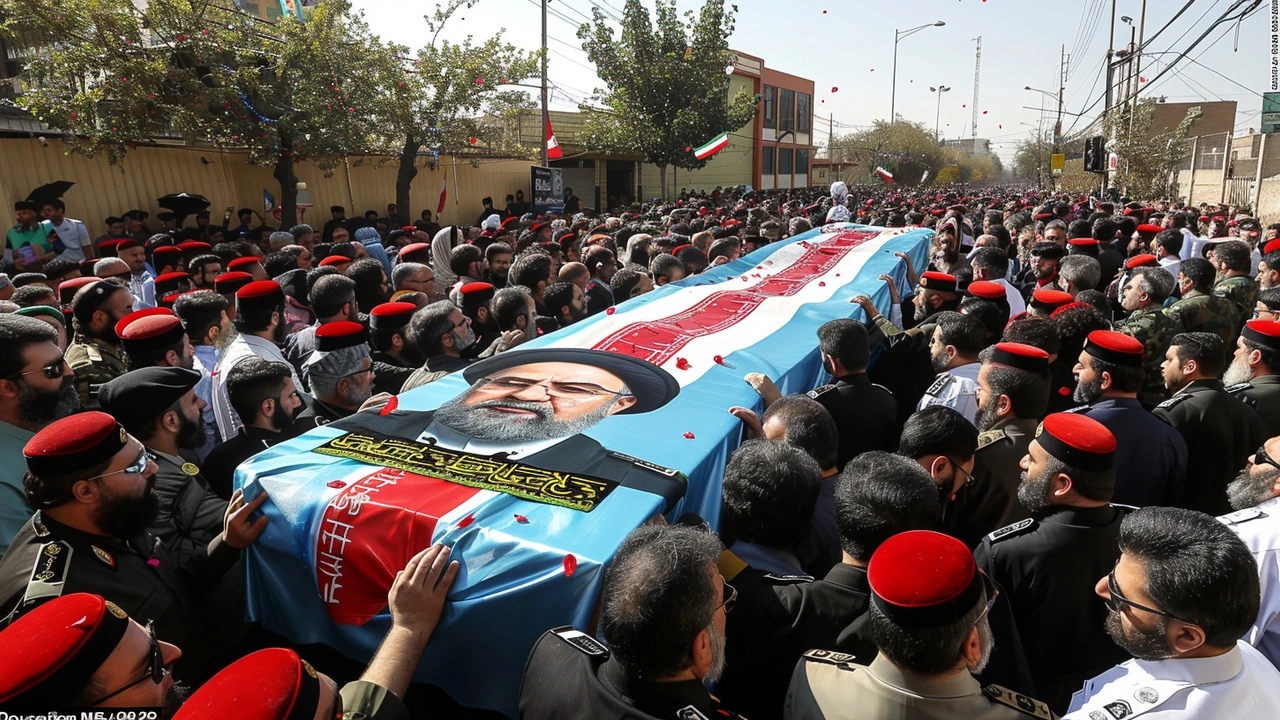
International Response and Condolences
Despite ongoing geopolitical conflicts, the death of President Raisi garnered a wave of international condolences. Russian President Vladimir Putin, Chinese Premier Li Keqiang, and representatives from NATO all sent messages of sympathy. This significant gesture highlighted the complex and often contradictory web of international relations. Even amid clear tensions between Iran and the West, the global community paused to acknowledge the death of a prominent leader.
Putin's message, in particular, underscored the depth of the strategic partnership between Russia and Iran, even as Raisi took bold steps in international affairs that did not always align with Western expectations. The expressions of sympathy from NATO members indicated a nuanced stance, reflecting a mixture of diplomatic formalities and genuine humanitarian respect.
The Impact of Raisi’s Leadership
Ebrahim Raisi's presidency was short but highly impactful. Known for his fervent adherence to conservative values, he was often criticized for his harsh policies and stringent enforcement of the law. The civil unrest following Amini’s death was met with a governmental crackdown that drew widespread condemnation. His era also witnessed deepening economic challenges, with inflation soaring and the value of the national currency plummeting. Yet, in his supporters’ eyes, Raisi was a staunch defender of Iran's national values against foreign influence.
Raisi was widely seen as a likely successor to Ayatollah Ali Khamenei, Iran's Supreme Leader. His death leaves a significant void in the political landscape, raising questions about the future direction of Iran's leadership. As a conservative figure, he represented a continuation of the country's long-standing ideological path. The upcoming electoral transition, overseen by Vice President Mohammad Mokhber, is anticipated with intense speculation.
National Mourning and Future Prospects
Supreme Leader Khamenei's declaration of five days of national mourning reflects the gravity of Raisi's death. In a polarized country experiencing both mourning and suppressed dissent, the atmosphere is charged. Prosecutors have sternly warned the public against displaying any celebrations of Raisi's demise, a testament to his controversial and polarizing legacy.
In this period of transition, Vice President Mohammad Mokhber steps in as caretaker president. The nation is set to head to the polls on June 28 to elect Raisi's successor, a decision that will significantly shape Iran's future. The upcoming elections are expected to be fiercely contested, reflecting the deep ideological divides within the country. Candidates are likely to present varying visions for Iran's path forward, encompassing economic recovery, social justice, and international diplomacy.
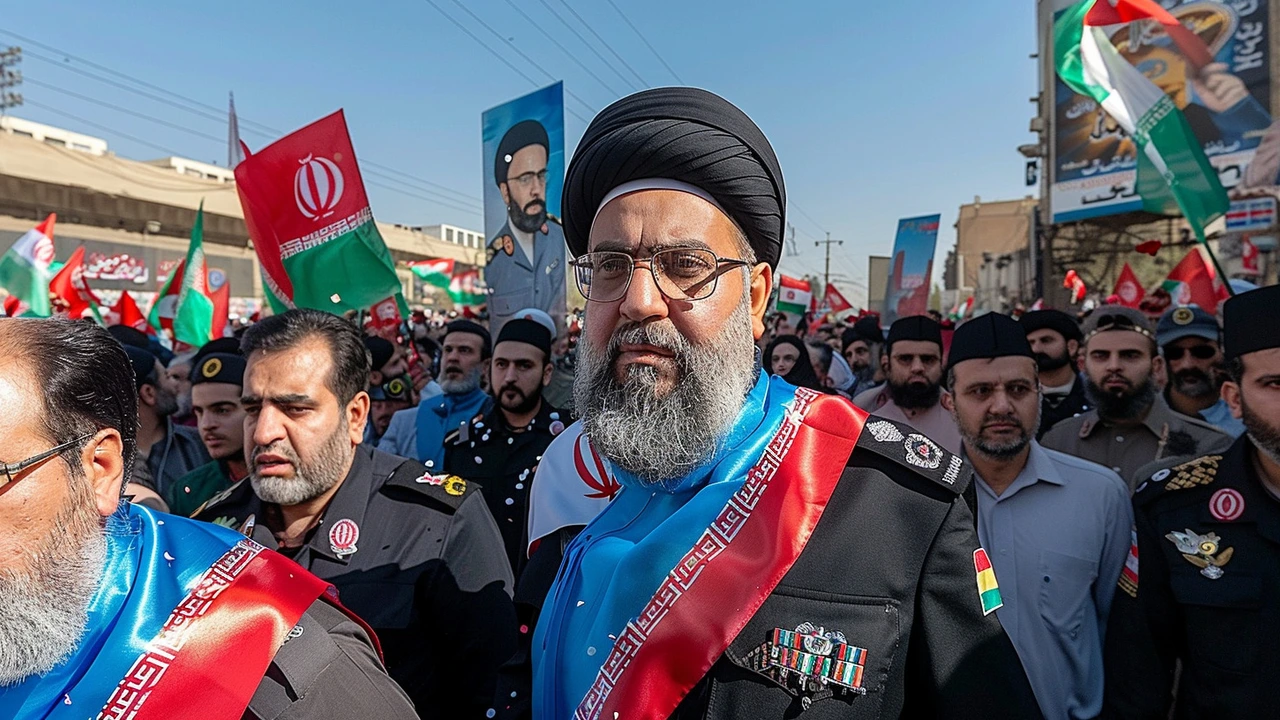
A Moment of Reflection
The tragic end to Ebrahim Raisi's life and presidency offers a poignant moment for Iran to reflect on its values, leadership, and future. As the nation mourns, the world will closely watch how this pivotal chapter in Iran's history unfolds. The balance between maintaining traditional values and adapting to modern global dynamics will be at the forefront of the nation's collective consciousness.
Mashhad, a city now holding the silent echoes of Raisi's journey from a devout servant of the state to its president, becomes a symbol of both reverence and reckoning. The holy shrine of Imam Reza stands as a reminder of the spiritual depth and complexity woven into the fabric of Iranian society.
Looking Ahead
As Iran navigates this period of mourning and transition, the international community’s role remains crucial. Global leaders will continue to engage with Iran, balancing diplomatic relations with the recognition of human rights and civil liberties. The future president's policies will undoubtedly influence Iran's position on the global stage, affecting everything from economic sanctions to regional security dynamics.
The loss of President Ebrahim Raisi marks the end of a controversial chapter in Iran's history. As the nation looks forward, it is an opportunity for reflection and perhaps, a reinvigoration of national unity. The spirit of those mourning and those yearning for change will shape the country's next steps. Meanwhile, the sacred grounds of Mashhad envelop the final rest of a leader who encapsulated both hope for authenticity and a reminder of the persistent struggles faced by Iran.

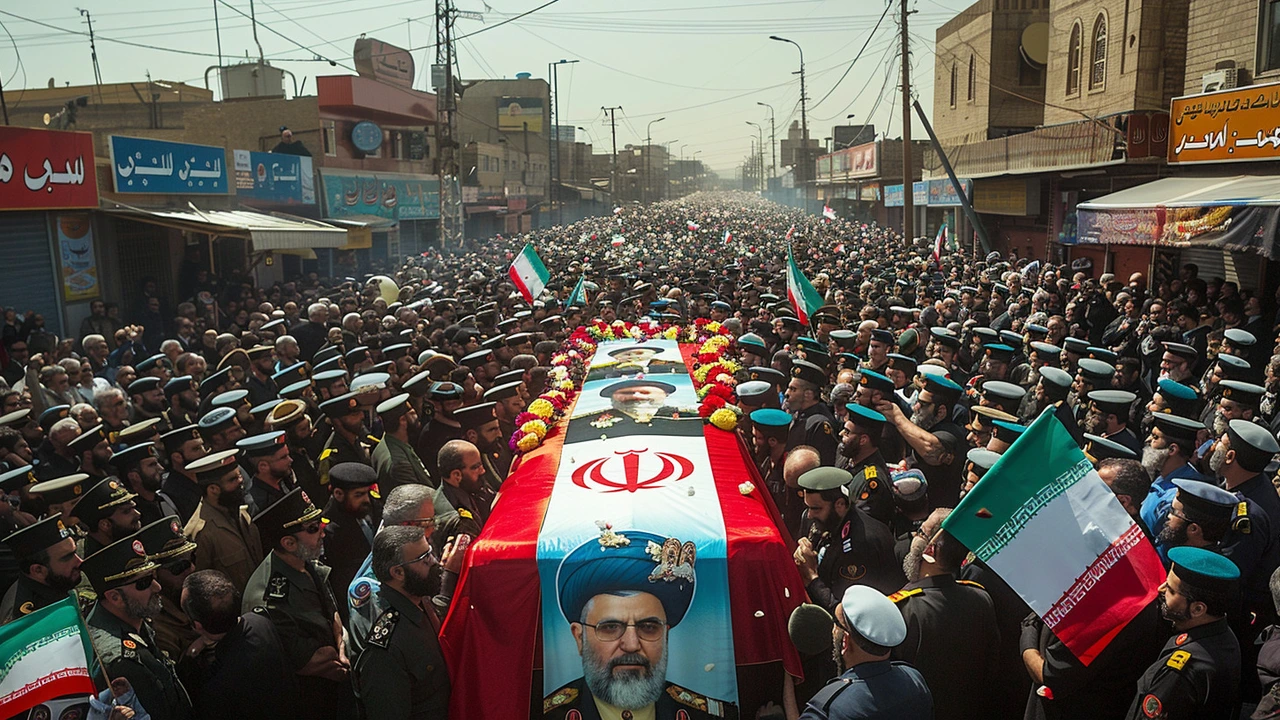

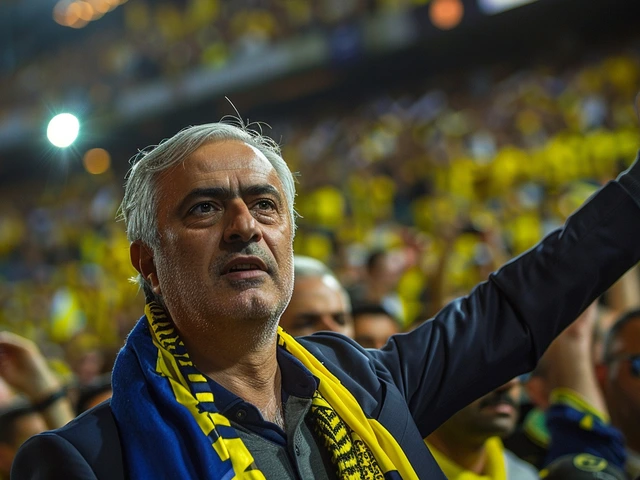
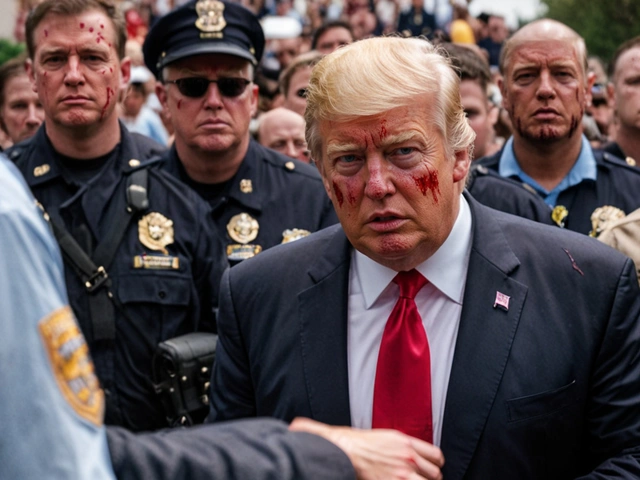
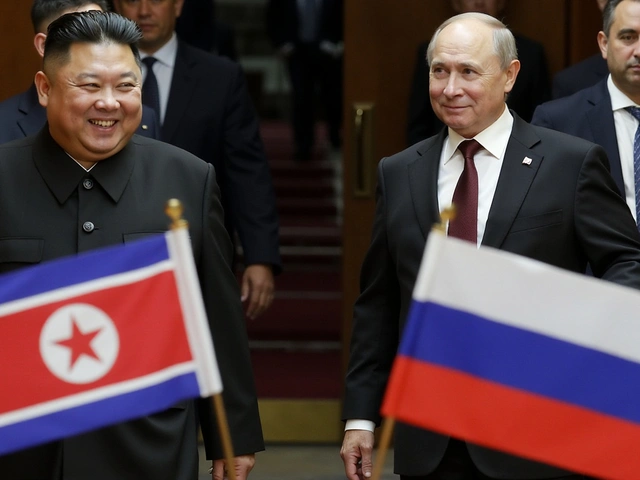
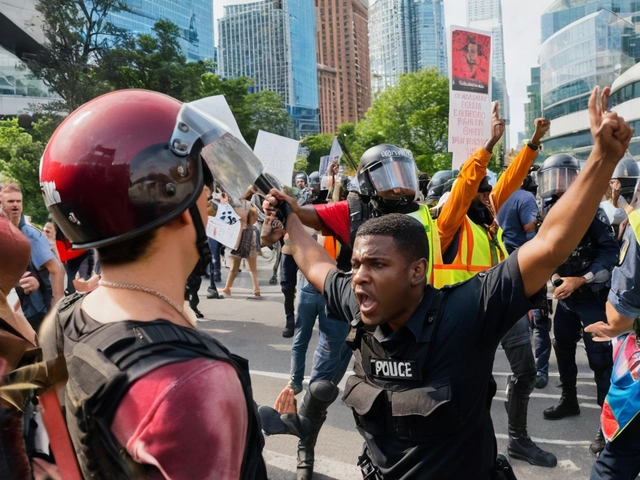
Diego Vargas
Raisi's death definatly shifted the political calculus in Tehran. The funeral at Imam Reza shrine highlighted how the regime blends religious symbolism with state power. While international condolences sounded diplomatic, Iran's internal dissent hasn't vanished. Economic woes and the crackdown after Mahsa Amini still loom over any successor. The upcoming election will test whether hardliners can keep the same trajectory, or if reformist voices will find a foothold.
Alex Lee
Raisi was just another puppet for the regime.
Vida Yamini
It is understandable that many Iranians feel a deep mix of sorrow and relief when looking at the events surrounding Raisi's passing, and this emotional complexity is something we can all empathize with. The nation is grieving a leader who many saw as a symbol of continuity, yet others viewed him as a barrier to much needed change, and that duality makes the mourning process particularly nuanced. In times like these, it helps to remember that collective grief can also be a catalyst for dialogue and healing, and that we as observers can offer our support in constructive ways. While the shrine stands as a solemn backdrop, the people's voices echo beyond its walls, reminding us that the desire for a more open society persists regardless of the ceremony. The international community’s condolences, though perhaps perfunctory, signal that the world is watching, and that can be a source of both comfort and pressure for domestic actors. As the election approaches, we should encourage voters to engage thoughtfully, consider the economic and social policies on the table, and not let fear dominate the conversation. Remember that empowerment starts with informed discussion, and that includes acknowledging the hardships faced by families of protest victims, as well as the aspirations of those who simply want stability. It is also vital to keep in mind that any future leader will need to address the rampant inflation that has eroded purchasing power for countless households, and that economic relief should be a priority for any platform. Moreover, the ongoing tension with regional powers adds another layer of complexity that cannot be ignored, and a balanced foreign policy could help soothe external pressures. By staying inclusive in our language, we can help bridge the gaps between different factions, showing that compassion does not have to be partisan. Solidarity among citizens, regardless of their stance on Raisi, can lay the groundwork for a more resilient civil society, something that will be essential in navigating the post‑Raisi era. It is also helpful to recognize the role of women’s rights activists, whose courage continues to inspire even in the face of repression, and to amplify their calls for justice in a respectful manner. In encouraging constructive debate, we can also point out that legitimate concerns about human rights should be met with concrete reform proposals rather than mere slogans. The path forward is undoubtedly fraught with challenges, yet every challenge offers an opportunity for growth if we choose to approach it with patience and an open heart. Let us all commit to listening more, judging less, and offering practical suggestions that can assist policymakers in drafting effective solutions. Ultimately, the hope is that the nation can transition from a period of mourning into one of hopeful renewal, and that the global audience will continue to support Iran’s journey toward a more inclusive future.
James Lawyer
The succession process in Iran must be examined within the constitutional framework that designates the Supreme Leader as the ultimate authority, and therefore any presidential candidate will operate under considerable constraints. Nevertheless, the upcoming electoral contest provides a rare window for parliamentary and public discourse on policy direction, particularly concerning the macro‑economic stabilization measures that have eluded successive administrations. It will be essential for candidates to articulate clear plans for mitigating inflation, restoring currency confidence, and re‑engaging with international financial institutions in compliance with existing sanctions regimes. Additionally, the balance between maintaining regional security commitments and pursuing diplomatic de‑escalation will test the strategic acumen of any prospective president.
Abby Culbertson
i feel kinda sad for the families, but also kinda hopeful that maybe new leaders will listen.
Awolumate Muhammed Abayomi
Hey fam, let’s keep our heads up and push for a future where Iran can thrive! The elections are a chance for all of us to support candidates who truly care about jobs, health care, and freedom of speech. Even if the road seems rocky, remember that every voice matters and together we can make a diffrence.
Josh Tate
i hear you, vida, and i really appreciate how you laid out all those points with such care. it's tough to see a nation in pain, and your reminder to stay inclusive and supportive hits home. we all need to keep that compassionate vibe alive as things move forward.
John Smith
yeah, but the truth is that elections in a tightly controlled system rarely change the power dynamics, no matter how much optimism you throw around.